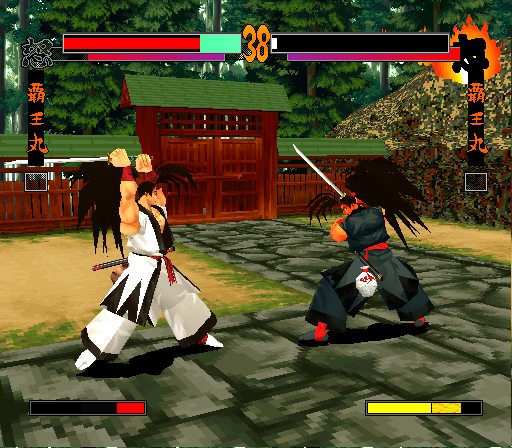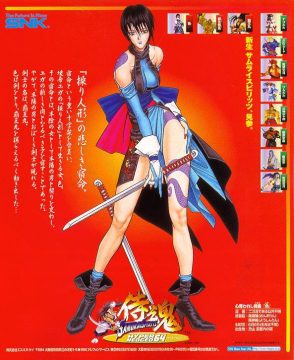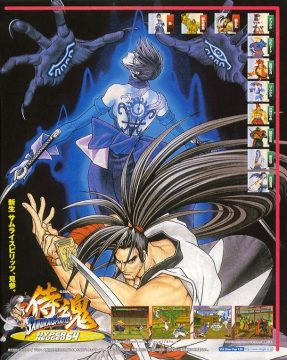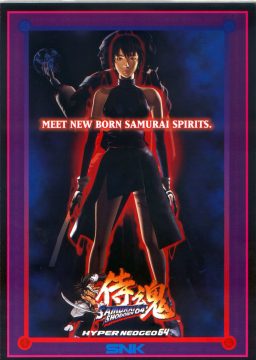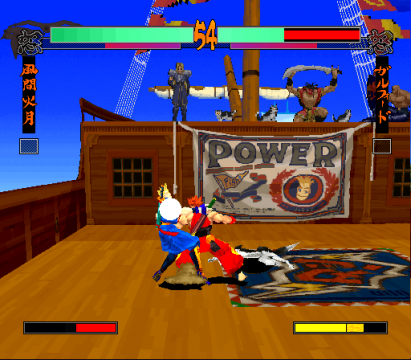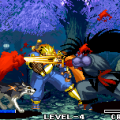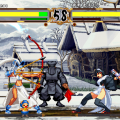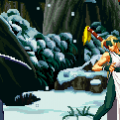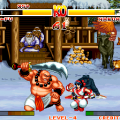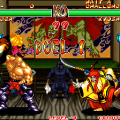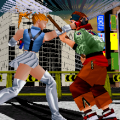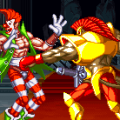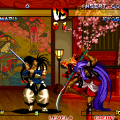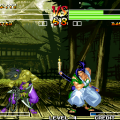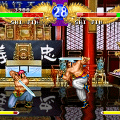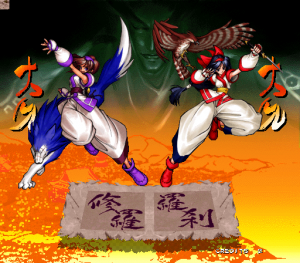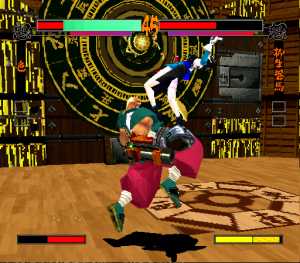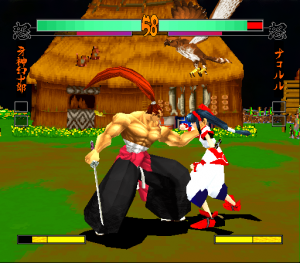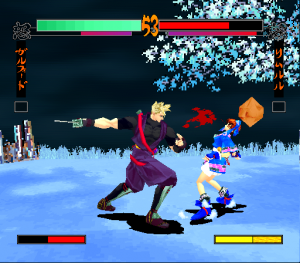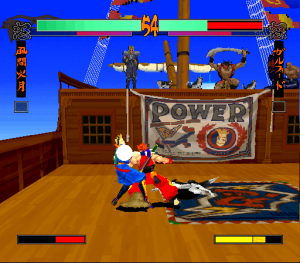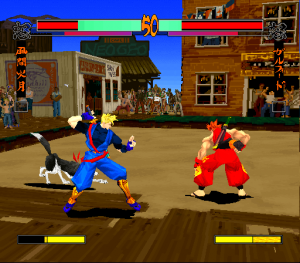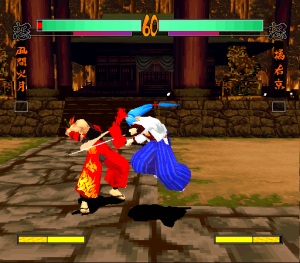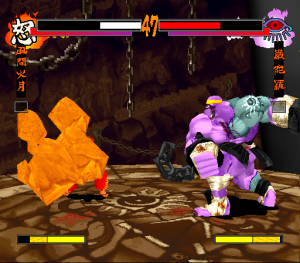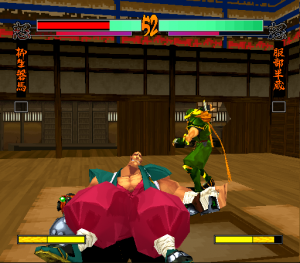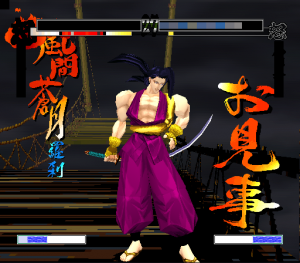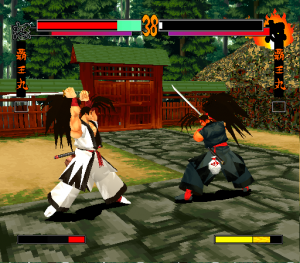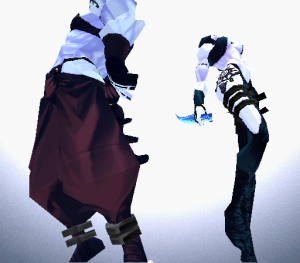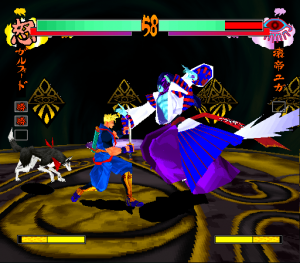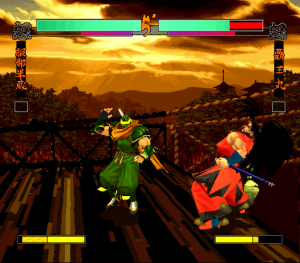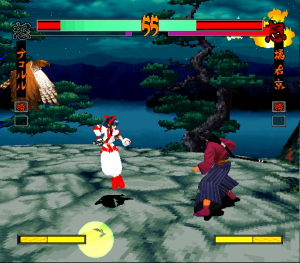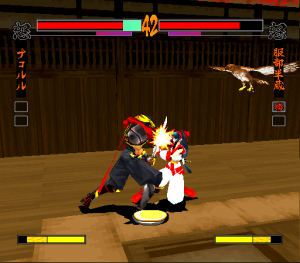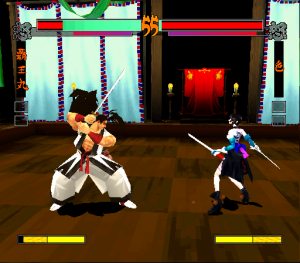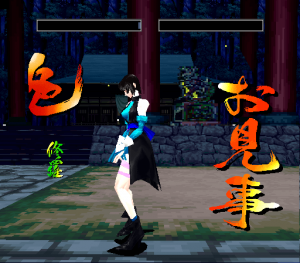- Samurai Shodown (Intro / Characters)
- Samurai Shodown
- Samurai Shodown II
- Samurai Shodown III
- Samurai Shodown IV
- Samurai Shodown V
- Samurai Shodown V Special
- Samurai Shodown 64
- Samurai Shodown (Neo Geo Pocket)
- Shinsetsu Samurai Spirits: Bushidou Retsuden
- Samurai Shodown VI
- Samurai Shodown Slash
- Samurai Shodown Sen
- Samurai Shodown 64: Warriors Rage
- Samurai Shodown: Warriors Rage
- Nakoruru: Ano Hito Kara no Okurimono
- Samurai Shodown (Anime)
SNK noticed the paradigm shift towards three-dimensional polygonal games in the late ’90s. Not wanting to be left behind, the company produced the Hyper Neo Geo 64 and created 3D installments for some of its more popular 2D franchises. Samurai Shodown 64 (simply titled Samurai Spirits in Japan), was released exclusively to arcades and features full 3D movement a la Soul Edge. It uses Samurai Shodown IV‘s gameplay system, renders characters and arenas in full 3D, and is also the first 3D fighter to feature interactive environments in which players can knock characters through walls and other structures and continue fighting in another part of the stage (well before Dead or Alive popularized the concept). There’s also a “Fatigue” bar that increases as you sidestep or perform actions and is supposed to be strategic, but is ultimately just a hindrance. Samurai Shodown 64 also introduced super and fatality attacks in the most stylish way seen yet in the series. When executing a technique, the character rushes towards the enemy and slices them, causing the game to switch to a painted rendition of the attack in action. Your opponent then erupts in blood and falls to the ground.
Samurai Shodown 64‘s plotline occurs in 1790, a year after Samurai Shodown II. The new antagonist is a demon wizard named Yuga who plans to dominate the world and achieve unlimited power. The new faces to the roster include Shiki, a twin-blade wielding femme fatale, and Hanma Yagyu, a warrior/inventor. The returning characters are Haohmaru, Nakoruru, Hanzo, Ukyo, Genjuro, Rimururu, Galford and Kazuki. There are also a few midbosses to challenge players throughout Arcade Mode: the massive Gandara faces the player under preset circumstances, and the Deku/Dekuina duo must be fought before Yuga appears. These boss battles also constitute one on the most frustrating parts of the game – if you die between the mid-bosses or during Yuga’s forms, you have to start all over. At least Yuga isn’t too difficult.
Samurai Shodown 64 was not distributed very well, likely due to the cost of the Hyper Neo Geo 64 board. It never received a home port (and there was no home conversion of the Hyper Neo Geo 64 system), limiting its exposure to arcade dwellers. While serviceable for its time, the graphics are a bit blocky, especially the character models. Although they animate fairly well, they still have a bit of a wooden movement to them. The game also uses 3D renditions of backgrounds from earlier games, resulting in a sense of nostalgia and deva vu. Overall, Samurai Shodown 64 is a good title, though not particularly groundbreaking aside from its transition to the third dimension.
Attention: Due to the state of emulation, the screenshots for this game have various imperfections and are not representative of the actual hardware.
